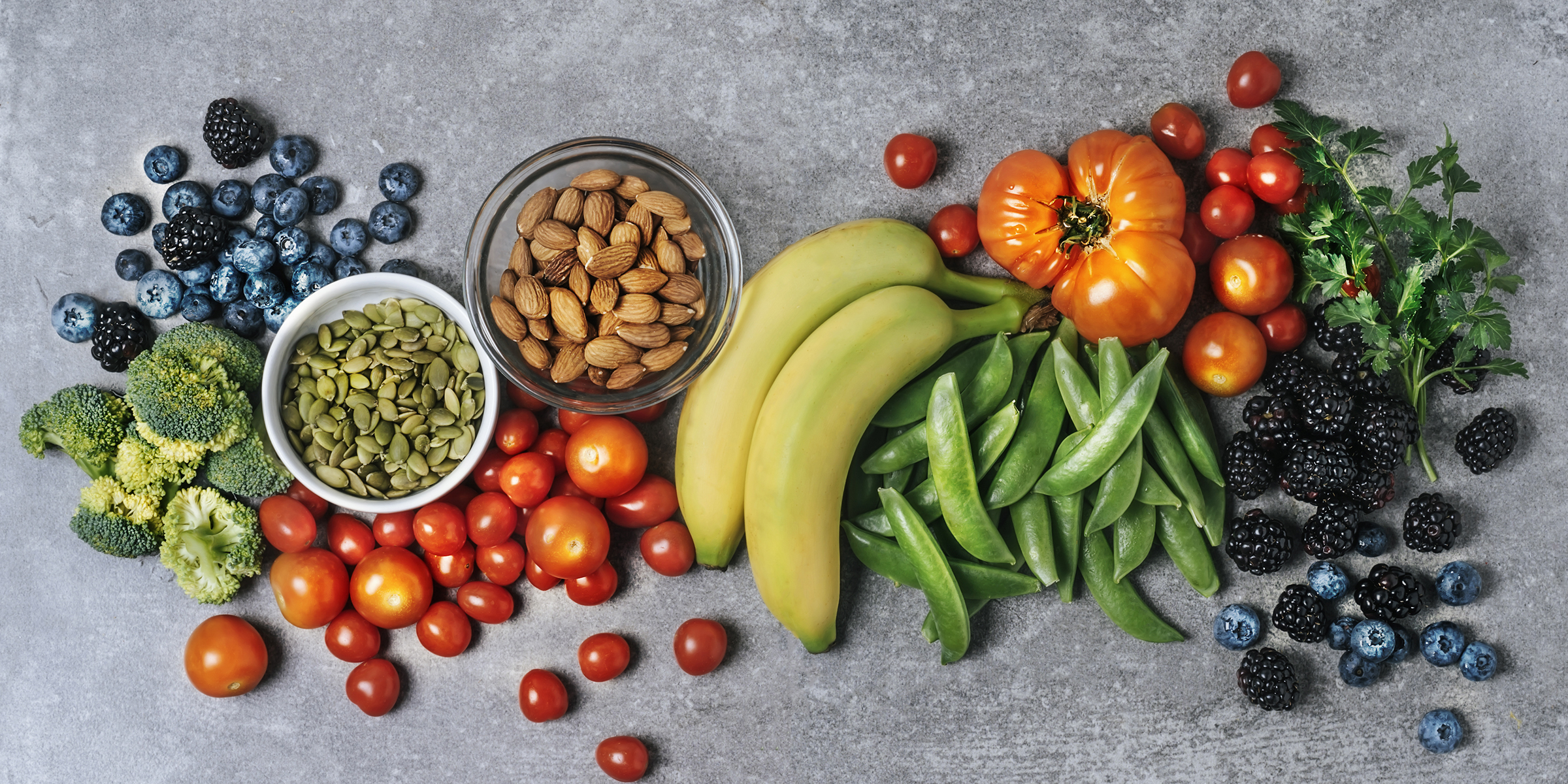What should you eat to lose weight?
What should you eat to lose weight?
It is one of the most regularly asked questions we receive in our inbox: “What should you eat to lose weight?” An important question, but not one that can be answered in a short email! There are a lot of misunderstandings about the right diet for weight loss.
Therefore, today we dedicate an entire blog to this issue. Do calories matter or not? What about scapegoats like fats and carbohydrates ? And to what extent are special meal replacements suitable for weight loss?
Eating and losing weight
Why is your diet so important now if you want to lose some weight? Simply put: losing weight is about 80% dependent on your diet. Sure, movement also plays a role. But if you eat less, you also have to exercise less. And it is impossible to train against an unhealthy diet.
Do you notice that you have become overweight? Then your nutrition is the area where the most and fastest profit can be achieved. “What should you eat to lose weight” is for that reason indeed the first question you should ask yourself.
What should you eat to lose weight?
The annoying thing is: a lot of nonsensical answers are given to the same question. You should start paying attention to your meal frequency, or you shouldn’t be allowed to eat after eight in the evening. It would all be due to the carbohydrates. Or you necessarily have to use the light products to be able to lose weight.
However, those kinds of issues are all side issues. At its core, losing weight is a matter of eating fewer calories than you burn. This is the only way to force your body to use your fat reserves as an alternative energy source.
All those other advice are, at best, ways to cut back on your calorie intake. To check whether it is also good advice, we have to see whether they actually succeed. We take a closer look at some of the most frequently heard tips below!
Eating more often to lose weight?
A popular advice: instead of three large meals, eat six small meals. That would speed up your metabolism and thereby ensure that you burn more calories. Whether that is also correct? That is disappointing: the effect on your metabolism is minimal …
Still, some people benefit from a greater number of smaller meals. Not because they burn more of it, but because they eat fewer calories. When you eat more often, you often snack less in between meals. If this is bothering you a lot, an adjustment to your eating schedule can help!
Do you want to cut fats or carbohydrates?
Then: what about the tips that cut whole macronutrients from your diet ? A decade ago, fats were often the victim. They are relatively high in calories and would therefore make you fatter. Nowadays, the carbohydrates often have to make way. These would be responsible for the fat storage in your body.
However, both views are much, much too simplistic. Both fats and carbohydrates are necessary to function properly. Even without fats you can still eat too many calories, and without carbohydrates you can simply store fat. Deleting entire categories is therefore not the solution.
It is also true that many people eat too many carbohydrates. If you eat bread twice a day and a large plate of pasta or rice in the evening , things quickly get out of balance. In that case, cutting carbohydrates is a good way to reduce calories. Not because the carbohydrates themselves are bad, but because excess is never good.
Light products and diet meals?
There is also a whole range of products that are specially made for weight loss. Think of all kinds of light variants, but also special meal replacements and shakes. With the latter, you would naturally lose weight if you use them instead of meals.
But does it also work? In principle, these types of products do indeed contain fewer calories, so that’s good. However, the downside is that they are also heavily processed. All too often, this ensures that you also get more appetite, and thus end up snacking. In that case they do not have much effect.
In addition, these types of products have another enormous disadvantage: they are very focused on temporary use. You eat them until you reach your goal weight, and then you start eating ‘normal’ again. Except that normal eating originally made you overweight! This way you quickly end up with a yo-yo effect …
Eating healthy for weight loss
To prevent that, the most sensible approach is really: teach yourself a sustainable and healthy diet. No crazy substitutes or completely missing categories, but a balanced and varied eating schedule that you can do for the rest of your life.
What does it appear? If you start eating healthier, you often automatically lose weight! This is because a lot less junk has been added to self-prepared, unprocessed food. It therefore saturates better and provides fewer calories. Together, this quickly ensures that you actually consume fewer calories.
Diet for weight loss
So what is the right food for weight loss? Roughly, your diet should include the following categories:
1. Vegetables and fruits
Vegetables in particular are rich in vitamins and minerals , provide a lot of filling fiber , and hardly any calories. So you can always eat more of that. Those 250 grams per day is a minimum! Too much fruit is unwise if you want to lose weight, but 2-3 pieces a day has been shown to be good for your weight.
2. Slow carbohydrates
Much has been said and written about carbohydrates. In short, it means that you mainly want to eat the carbohydrates with fiber: they are a lot more filling. Whole grain products, that is! Whole wheat bread, whole wheat pasta, brown rice , potatoes, and oatmeal are all great choices.
3. Lean proteins
Proteins have many functions if you want to lose weight. For example, they stimulate your muscle building and ensure a satiated feeling . However, it is best to choose lean proteins , because animal fats are not healthy in large quantities. Think white meat, dairy, eggs , legumes and soy .
4. Healthy fats
Finally, the healthy fats . They may be energy-rich, but you really need them in limited quantities! You get them from fatty fish , nuts and olive oil, for example. Please note, you don’t need much of saturated fats in, for example, meat and cheese . Too much is unhealthier there.



